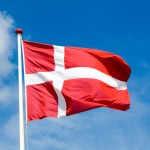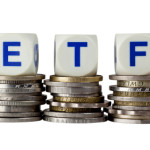Podcast: Play in new window | Download
In the first section of this interview with author Lars Kroijer we talk about his idea, from the book Investing Demystified, that we should all seek portfolio exposure to the broadest segment of global equities – essentially all 95 stock markets in the world. In the second part of this interview we talk about the opposite – namely the dangers of concentrating all of your investment portfolio within, say, your home country.
Michael: I’m talking to Lars Kroijer, [/Kroy’-er/] the author of Investing Demystified which I’ve reviewed on the Bankers Anonymous site. First things first, I read your book and I agree with a ton of it, the theory. And then I thought about my own portfolio, and I thought I’m two-thirds the way towards what you’re saying. By that I mean I invest in index-only Russell 2000 index funds. Talking about my retirement portfolio. I halfway embraced what I think is – in shorthand – an efficient market hypothesis. But I’m not entirely there, so tell me about why I’m doing it wrong.
Lars: It’s an interesting place to start because you are doing it less wrong than most people in the world would be. You being an American investing in a very broad US index, you are already invested in a very large portion of the world-equity portfolio. What I would normally tell people is you need to invest cheaply and extremely broadly in equity indices for your equity exposure.
Now what does that mean? That means all equities traded in the world. I think there are 95 public equity markets in the world today, and you should be invested in all those in proportion to their values. You’re only invested in one, the US one, but that’s the biggest one by a very large margin. So failing to invest abroad is less of a sin than it is for someone who is based in Denmark, where I’m from, that represents only 1 or 2% of the world-equity markets. Where I’d tell you you’re going wrong is you should diversify beyond the US, and you’re not doing that.

Michael: So I’m a complete hypocrite on this front. I worked in emerging markets so I professionally, on Wall Street, worked in non-US markets. Whenever I speak to friends, I say, “If you’re completely exposed to the US, you’re doing it wrong.” And nobody who grew up in any other country but the US would probably ever dare to be so bold as to only invest in their own country. It’s an irony.
Lars: It’s interesting you say that, if I could just interrupt you there; you look at institutional investors in the UK or in Denmark, really any country in the world, and a lot of them will have exposure to just their own domestic stock markets, for lots of terrible reasons.
I’m saying that is generally a mistake, but in your case, it’s less of a mistake than if you lived in Denmark. If you lived in Denmark you would only have exposure to 1% of the world equities, where in the US it’s more like 35-40%. When I tell people to go buy the world-equity portfolio, you already have 35-40% as opposed to in Denmark you’d have 1-2% of that, so that is a big difference.
Michael: Getting extremely practical, how many different positions in either ETFs or mutual funds do I actually need to buy if I’m going to get some kind of efficient frontier of global equity exposure?
Lars: You can do just one.
Michael: There’s a single ETF?
Lars: The reason I’ve refrained from endorsing just one specific security is because I’m hoping that world-equity markets is a race to the bottom in terms of fees product. Right now, that might be called MSCI All Country World. Personally I don’t care what the index is called because what we’re after is the broadest, cheapest exposure. If someone comes up with a cheaper, better index, that’s even better. If an index-tracking product is cheaper and better, that’s even better. But you can buy the MSCI All Country World in one ETF, iShares will do that, DB Trackers will do that, Lyxor will do that. Vanguard does a version of it.
Michael: I was going to ask: I use Vanguard because of their brand name, and low cost, passive mutual fund investing.
Lars: They’re very good.
Michael: They have this global, total world-equity exposure. Are there another half-dozen US fund companies who also –
Lars: Yeah all the large ETF providers will have it.
This idea that you have your house, your education, your pension, all your assets come together and really are correlated to the same thing, which is typically your local economy. So one example I have in my book is imagine you’re a London-based real estate agent and you have your own flat. And you have a pension with the real estate agents, and then on top of that you own a couple of real estate related stocks in the UK.
Now, you are really long in London real estate market and that’s crazy to do that in your investment portfolio when you’re already so long in the rest of your investment life. This is yet another reason you’ve really got to stay diversified in your investment portfolio. Even sometimes your future inheritance is going to be in the same stuff: your parents’ house, your spouse’s job, dependent on the same local economy, your future job prospects dependent on the same local economy. Don’t have your investments in that same area.
This argument actually works better outside the UK because you can apply it to ‑‑ instead of London real estate I say Denmark. So very easily don’t have your equity investments in Denmark because you’re already long in Denmark. I think that’s a hugely important part of why these kind of diversified products really make a lot of sense for a lot of people. And why I think it’s a great shame that people tend to have their equity investments and investments generally so close to where their other assets are. They really all can go badly wrong at once, and that’s exactly what you should avoid.
Michael: We know from the 2008 crisis that all risk assets correlate almost to one. In extreme downturn – everything that is a risk asset goes down all at the same time. That was a very scary reminder of that. There is nothing that is at all risky that doesn’t drop in value in a crisis.
Lars: You’ve got to diversify. Then you could also look at if you’re a Greek investor, your real estate, your future pensions, your house, your job, all that would go belly up at the same time. Meanwhile, the rest of the world was fine. Imagine you had Greek government bonds as your low-risk asset. If you’d also had the Greek equity market as your equity exposure, you really would’ve been toast. Don’t do that. You’re not getting additional expected returns to reward you for that.
I think that’s an area that’s very important that people don’t talk enough about. That frustrates me. Again, people don’t want to listen to it because there’s little money in telling someone to buy the world-equity index. No one is interested in that.
Michael: As an emerging-markets guy, it’s clear to me that anybody with any kind of net worth in any of these countries which has experienced typically a currency devaluation or nationalization or national political crisis, anybody generationally who grew up in that who has any net worth, always has a significant portion of their assets in Europe or the US or hard currencies. But in the US we don’t have an experience of having our credit – of course it’s been downgraded in the US but it’s not been junk status.
Our currency has never devalued wildly or unexpectedly. People are quite complacent about the idea of our exceptionalism. I’ve often said ‑‑ you said you wrote this book in a sense for your mom. I’ve often had conversations with my mom along these lines of do you know that most US investors have never considered that their house, job, currency exposure, government credit exposure is all US based? With almost no diversification. And we’ve gotten away with it up to this point, but it doesn’t mean we will in the future. It’s imprudent but as you say, people continue to do it because it’s either complicated, seems hard, boring, or not enough people are telling them to look elsewhere.
Lars: No one is really incentivized for you to do that. No one makes money. The CFAs or financial planners don’t make money from this. What we’re talking about is not a good thing for the financial-planning industry either.
Michael: It’s a much lower fee situation.
Lars: Much lower fees, and paid by the hour kind of stuff.
Michael: For the typical ‑‑ my orientation is the US investor ‑‑ the typical US investor, it will sound like madness when you say exposure to every equity market such that two-thirds of your money will be exposed to non-US will sound very aggressive to the US market. It doesn’t sound aggressive to me. It sounds like an obvious, logical outcome of the efficient-market hypothesis, just get the broadest exposure. But it will sound aggressive. You mean you’re going to put 65% of your net worth in non-US?
Lars: You’re going to own Indonesian stocks? Where’s Indonesia?
Michael: It sounds very aggressive. It sounds less aggressive to anybody who doesn’t live in the US, because they’re used to that.
Lars: That’s right, I couldn’t agree more. This book actually shouldn’t but it’s going to be an easier pitch outside the US because you’re already likely to have exposure to non-domestic securities or at least you’re going to be accepting of the possibility that you should.
Michael: In currencies and government exposure, and all of that.
Lars: That’s why all the best FX (foreign exchange) traders are all Argentine. They grew up ‑‑ my college and business school roommate is from Bolivia. He said the one time in his life his mom ever hit him was when he was a kid and he’d gotten some US dollars. He had to run down to the bank and exchange them. Or he had some bolivar or whatever it’s called. He ran down and exchanged the US dollars. He came across a [soccer] pitch and a bunch of guys were playing football, so he played football for two hours and then he went to exchange it. The amount of money that had cost in the currency…
Michael: Poor kid.
Lars: You learn about inflation real quick.
Michael: Tough lessons about inflation.
Please see related post, a book review of Investing Demystified, by Lars Kroijer.
Please also see related podcast post, Interview Part II – Do you have an ‘edge’ when it comes to investing? We doubt it! Also, a description of Kroijer’s previous book Money Mavericks: Confessions of a Hedge Fund Manager
Post read (4436) times.









5 Replies to “Interview: Author Lars Kroijer (Part I) – on Global Diversification”
Your mother has over 15% of retirement money invested outside the US.
My mother is a good investor!
And I have none directly invested outside the US 🙁
Very interesting, thank you! Taking this reasoning further along, if you invest abroad using an ETF held in a USD account at a US-based bank – does this really offer the diversification you seek? I’d say you need -at least!- to make sure the ETF has actual foreign currency exposure (not hedged), and… also hope that your bank doesn’t fail on you!
You make a good point, that currency and counter-party risk should be taken into account, for true investment bliss.
As far as counter-party risk, most investments in ETFs should not be lost if the sponsor bank failed, as the underlying investments should be protected by a combination of SIPC insurance, and the separation of customer money and bank money. Although of course the 2008 Crisis stressed those assumptions, between money tied up in frozen accounts, and widespread frauds like Madoff and Stanford.
As for currencies, I think you’re right you’d want – from the Kroijer perspective – to get maximum exposure.